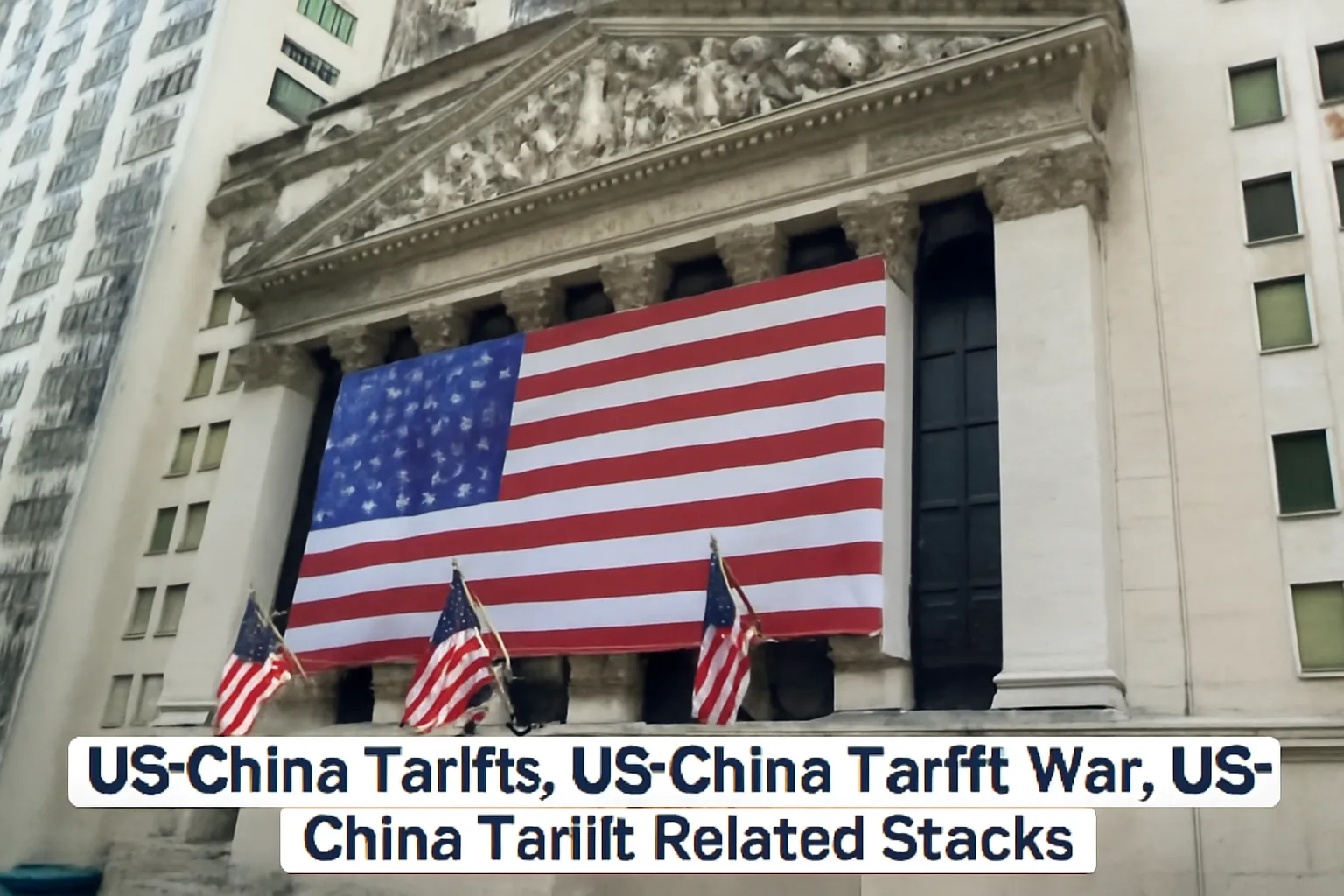The US-China tariff war has been a topic of intense debate and has dramatically impacted not just the two countries involved but also the global economy. Over the years, these trade disputes have shaped the stock market, with many stocks experiencing volatility based on tariff-related announcements. In this article, we’ll dive into the complexities of US-China tariffs, their impact on various industries, and how specific stocks have been influenced by the tariff dynamics between the two economic giants.
US-China Tariffs: An Overview
The US-China trade war, which began in earnest around 2018, was characterized by a series of tariffs imposed by both the United States and China on each other’s goods. These tariffs were part of broader efforts to balance trade deficits, address intellectual property concerns, and ensure fair market practices. The trade war initially sparked concerns over the potential economic fallout, with industries reliant on Chinese imports or exports facing increased costs.
For instance, sectors like technology, agriculture, and manufacturing were among the most affected. Tech companies faced steep tariffs on electronic goods and components imported from China, while US farmers struggled as Chinese tariffs on agricultural products increased. The ripple effects of the trade war were felt globally as supply chains were disrupted, and businesses had to find new markets or adjust their pricing structures.
Why Did Tariffs Affect Stocks?
Stocks are a reflection of investor sentiment, and tariffs can significantly influence how businesses perform financially. When tariffs are imposed on goods, companies face higher costs to produce or import their products. These increased costs often get passed on to consumers, which can lead to reduced demand, lower earnings, and consequently, falling stock prices.
At the same time, some companies or industries have seen a positive impact from the tariffs. For example, companies that manufacture goods outside of China or those that benefit from reduced competition from Chinese imports may see their stocks rise. Thus, US-China tariffs not only caused market volatility but also created opportunities for certain players in the stock market to thrive.
US-China Tariff War: The Economic Fallout
The US-China tariff war extended far beyond the initial shock. It became a long-standing and complex issue with shifting strategies, agreements, and retaliatory actions. As both nations adjusted their policies, it led to uncertainty in the global economy. For instance, after a prolonged period of tension, Phase One of the trade agreement between the US and China was signed in January 2020. This phase included commitments from China to purchase more US goods and a reduction in some tariffs. However, the underlying issues regarding intellectual property and market access remained unresolved.
The uncertainty surrounding the US-China trade war impacted global markets, with many investors wary of making decisions that could be adversely affected by tariffs. In fact, many stocks in sectors heavily reliant on international trade, like retail and consumer electronics, saw sharp fluctuations as investors tried to predict the outcome of the trade war.
Impact on Specific Sectors
Certain industries were particularly vulnerable to the effects of the tariff war. For example, the technology sector saw both gains and losses. Tech companies that rely on Chinese-manufactured components, like Apple and Qualcomm, were hit by tariff hikes. However, companies like semiconductor manufacturers based in the US and other countries outside China benefited from the disruption in the supply chain.
The automotive industry was another significant player, with both US and Chinese automakers experiencing disruptions in their supply chains and a decline in cross-border sales due to tariffs on vehicles and parts. The tariffs also affected consumer prices for cars, leading to a decline in demand and affecting automotive stocks.
Opportunities in Tariff-Related Stocks
Despite the overall uncertainty, the tariff war also led to the emergence of opportunities in certain stocks. US companies that could circumvent the tariffs by manufacturing products outside China or by shifting production to other countries, like Mexico or Vietnam, experienced increased investor interest. Additionally, companies that became more competitive due to the displacement of Chinese-made goods saw growth in their stock prices.
Case Study: Stock Movements During Key Tariff Announcements
In 2018, after President Trump announced a 25% tariff on $50 billion worth of Chinese goods, stocks across various sectors took a sharp dip. However, tech companies like Apple faced a unique challenge. The company’s reliance on China for the production of many of its components meant that the tariffs significantly impacted its supply chain. Apple’s stock fluctuated as investors weighed the potential consequences of a higher cost of goods sold and the implications on consumer pricing.
Similarly, in 2019, when the US and China entered negotiations for a potential trade agreement, market optimism surged, and stock prices in many sectors showed signs of recovery. This cycle of uncertainty followed by temporary resolution played a crucial role in stock price volatility during the US-China tariff war.
Why Investors Should Be Cautious and Prepared
Investors must be cautious when dealing with tariff-related stocks. While some companies may benefit from the disruptions caused by the US-China tariff war, the overall uncertainty can lead to significant risks. A sudden change in government policy, a new round of tariff impositions, or an unexpected trade agreement can result in sharp fluctuations in stock prices.
As the world continues to navigate the evolving US-China trade relations, staying informed about tariff updates and understanding how they affect global supply chains will remain crucial for investors.
👉 More Insights on US-China Tariff-Related Stocks 👈
Closing US-China Tariffs: What’s Next?
The closing of the US-China tariff war may be a distant prospect, as the trade relationship between the two countries remains complex. While Phase One of the agreement helped reduce some tension, unresolved issues like intellectual property rights and market access remain in the spotlight.
Future of Tariffs and Stock Market Impact
As of now, no clear end to the tariff battle is in sight. However, if future agreements or further tariff reductions occur, certain stocks in affected industries may see a rebound. The stock market will likely continue to react to any developments in the US-China trade relationship.
Recommendations for Investors
For investors looking to navigate the uncertain waters of US-China tariffs, diversification remains the key. Investing in sectors or companies less reliant on international trade or those positioned to benefit from tariff shifts may be wise. Additionally, staying updated on trade policy changes will help investors make informed decisions as the trade war continues to evolve.
👉 Stay Updated on the Latest Trade Developments 👈
Conclusion
The US-China tariff war has left a lasting impact on the global economy and stock market. While many companies have been negatively affected by tariffs, others have capitalized on shifting supply chains and reduced competition. The market has shown resilience in the face of uncertainty, and investors have had to adapt quickly to changing conditions.
Understanding the long-term implications of the US-China tariff policies on different sectors will remain essential for making informed investment decisions. As both countries continue to navigate their complex economic relationship, the evolving tariff landscape will undoubtedly continue to shape stock movements and investment strategies in the coming years. “In the middle of difficulty lies opportunity,” a quote by Albert Einstein, perfectly encapsulates the reality of investing during the ongoing US-China tariff conflict.






